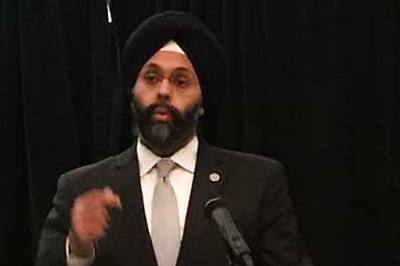
views
The Centre on Friday issued an advisory on reclaiming landfill sites, suggesting to Urban Local Bodies (ULBs) to treat and dispose solid waste through environment-friendly bioremediation process.
Urban areas account for a third of the country's population and generate 54.75 million tonnes of municipal solid waste annually, according to government figures given in the "Landfill Reclamation" advisory.
Releasing the advisory at a 'World Environment Day event, Union Housing and Urban Affairs Minister Hardeep Singh Puri said that almost all of urban India is open-defecation free now.
Scientific processing of solid waste which was mere 18 per cent at the start of the Swachh Bharat Mission in 2014 has more than tripled to 65 per cent, he said.
In the advisory, the ministry said that over 10,000 hectares of urban land is locked in as dumpsites in the country.
These dumpsites generate methane (a greenhouse gas) and other landfill gases which contribute to global warming, the advisory said.
The reclamation project must adopt an integrated approach to propose all the activities required for dumpsite remediation, it said.
"The treatment and disposal of legacy MSW (municipal solid waste) can be done by bioremediation. A total station survey or drone-mapping of any landfill/dumping site must be done prior to start of the project.
"Hence, it is suggested to ensure a precursor study with history of the site," the advisory stated.
It also asked Urban Local Bodies (ULBs) to set up an eco-friendly and non-polluting processing system in order to reduce the impact of the dumping site on their adjacent areas.
It also said ULBs should carry out necessary geotechnical surveys for considering the hydrological and flooding potential at the site in order to mitigate any effect on the activities during bioremediation.
Periodic study should also to be carried out after completion of bioremediation to check for any adverse effects in the surrounding area, it said.
The advisory said bioremediation or biomining refers to an environment-friendly technique to separate soil and recyclables from legacy waste.
Puri also released advisories on "Material Recovery Facilities" and "Consultative Document (draft) on On-site and Off-site Sewage Management Practices."
He said that the launch of these documents cannot come at a more opportune occasion.
The ministry has been constantly working on capacity-building of ULBs to focus on various components of solid waste management and holistic sanitation including wastewater treatment not just through the creation of infrastructure but through capacity-building and behaviour-change communication.



















Comments
0 comment